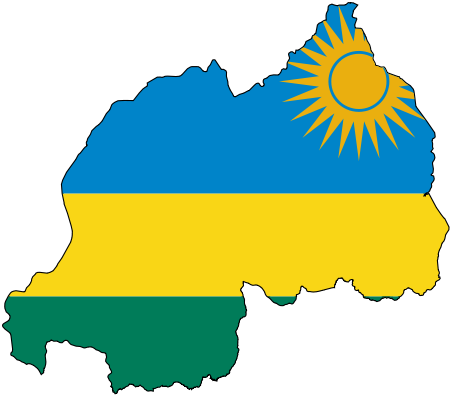DoD Peer Reviewed Cancer, Virtual Cancer Center Director Award
The FY24 PRCRP VCCDA supports a unique, interactive virtual cancer center (VCC) focused on bringing together two established investigators and up to 12 newly awarded additional early career investigators (Scholars) and their mentors (Career Guides) to interrogate the commonalities of cancer.
In addition, there are seven Scholars with active awards from FY22 who would join the VCC under the auspices of the FY24 VCCDA.
The VCC will provide intensive mentoring, national networking, collaborative opportunities, and a peer group for Scholars.
The Director and Deputy Director (referred to as the VCC Leadership) will catalyze the growth and professional development of the Scholars, promote the cross pollination of different cancer disciplines, assess the progress of the Scholars, and facilitate communication and collaboration among all of the VCC members.
The VCC will give the Scholars opportunities to operate in a collegial, highly dynamic, and cutting-edge center to lead cancer research to a new frontier.
This FY24 Funding Opportunity is soliciting applications for a Director and Deputy Director to design and implement the VCC.
The Director and Deputy Director must be established cancer researchers, be at different institutions, and be in different cancer disciplines along the cancer care spectrum.
The VCC Leadership must demonstrate a strong record of mentoring and training early career investigators, a commitment to leadership, and the ability to objectively assess the progress of all of the Scholars in the VCC.
It is the intention that through the VCC, collaborations will foster new growth in different cancers and spur and integrated cancer center to ensure the research advancements across different cancer centers.
The Virtual Cancer Center Director Award is structured to support two Principal Investigators (PIs).
The Director will be identified as the Initiating PI and will be responsible for the majority of the administrative tasks associated with application submission.
The Deputy Director will be identified as the Partnering PI.
Both PIs should contribute significantly to the development and execution of the VCC.
If recommended for funding, each PI will be named on separate awards to the recipient organization(s).
Each award will be subject to separate reporting, regulatory, and administrative requirements.
For individual submission requirements for the Initiating and Partnering PI(s), refer to Section II.D.2, Content and Form of the Application Submission.
The application should clearly demonstrate that both PIs have equal levels of input on the proposed VCC Leadership and clearly define the components to be addressed by each to continue the success of Scholars.
While it is up to the Director and Deputy Director to define their roles, both VCC Leaders should have interactions with the Scholars; acting as administrative support does not fulfill the intent of the Deputy Director.
A portion of the total direct budget costs (no more than 15%) must be reserved to support the collaborative “seed projects.” Seed projects should be collaborative projects conceived and proposed by a minimum of two current Scholars.
The VCC Leadership will be responsible for developing the intent of the seed projects, the submission requirements, and coordinating and funding a scientific peer review of projects proposed for funding during the period of performance.
The PRCRP seeks to promote novel approaches to ending cancer through convergent science cancer research.
Convergent science as defined by the National Science Foundation (https://www.nsf.gov/od/oia/convergence/index.jsp) “is a means of solving vexing research problems, in particular, complex problems focusing on societal needs.
It entails integrating knowledge, methods, and expertise from different disciplines and forming novel frameworks to catalyze scientific discovery and innovation.” Convergent science taps into a variety of disciplines to answer the issues in cancer (i.e., prevention, diagnosis/detection, treatment, quality of life, disparities) including but not limited to biomedical sciences, data science, engineering, psychology, and chemistry.
Convergent science breaks down the barriers of cancer research and builds a whole answer with tools from different areas of expertise.
Investigators applying to the VCCDA are encouraged, but not required, to integrate convergent science in the design of the VCC.
In addition, there are seven Scholars with active awards from FY22 who would join the VCC under the auspices of the FY24 VCCDA.
The VCC will provide intensive mentoring, national networking, collaborative opportunities, and a peer group for Scholars.
The Director and Deputy Director (referred to as the VCC Leadership) will catalyze the growth and professional development of the Scholars, promote the cross pollination of different cancer disciplines, assess the progress of the Scholars, and facilitate communication and collaboration among all of the VCC members.
The VCC will give the Scholars opportunities to operate in a collegial, highly dynamic, and cutting-edge center to lead cancer research to a new frontier.
This FY24 Funding Opportunity is soliciting applications for a Director and Deputy Director to design and implement the VCC.
The Director and Deputy Director must be established cancer researchers, be at different institutions, and be in different cancer disciplines along the cancer care spectrum.
The VCC Leadership must demonstrate a strong record of mentoring and training early career investigators, a commitment to leadership, and the ability to objectively assess the progress of all of the Scholars in the VCC.
It is the intention that through the VCC, collaborations will foster new growth in different cancers and spur and integrated cancer center to ensure the research advancements across different cancer centers.
The Virtual Cancer Center Director Award is structured to support two Principal Investigators (PIs).
The Director will be identified as the Initiating PI and will be responsible for the majority of the administrative tasks associated with application submission.
The Deputy Director will be identified as the Partnering PI.
Both PIs should contribute significantly to the development and execution of the VCC.
If recommended for funding, each PI will be named on separate awards to the recipient organization(s).
Each award will be subject to separate reporting, regulatory, and administrative requirements.
For individual submission requirements for the Initiating and Partnering PI(s), refer to Section II.D.2, Content and Form of the Application Submission.
The application should clearly demonstrate that both PIs have equal levels of input on the proposed VCC Leadership and clearly define the components to be addressed by each to continue the success of Scholars.
While it is up to the Director and Deputy Director to define their roles, both VCC Leaders should have interactions with the Scholars; acting as administrative support does not fulfill the intent of the Deputy Director.
A portion of the total direct budget costs (no more than 15%) must be reserved to support the collaborative “seed projects.” Seed projects should be collaborative projects conceived and proposed by a minimum of two current Scholars.
The VCC Leadership will be responsible for developing the intent of the seed projects, the submission requirements, and coordinating and funding a scientific peer review of projects proposed for funding during the period of performance.
The PRCRP seeks to promote novel approaches to ending cancer through convergent science cancer research.
Convergent science as defined by the National Science Foundation (https://www.nsf.gov/od/oia/convergence/index.jsp) “is a means of solving vexing research problems, in particular, complex problems focusing on societal needs.
It entails integrating knowledge, methods, and expertise from different disciplines and forming novel frameworks to catalyze scientific discovery and innovation.” Convergent science taps into a variety of disciplines to answer the issues in cancer (i.e., prevention, diagnosis/detection, treatment, quality of life, disparities) including but not limited to biomedical sciences, data science, engineering, psychology, and chemistry.
Convergent science breaks down the barriers of cancer research and builds a whole answer with tools from different areas of expertise.
Investigators applying to the VCCDA are encouraged, but not required, to integrate convergent science in the design of the VCC.
Relevant Nonprofit Program Categories
Obtain Full Opportunity Text:
Rural Emergency Medical Communications Demonstration Project
Additional Information of Eligibility:
FOR INFORMATIONAL PURPOSES ONLY: This is a "Notice of Intent" to award to the Student Conservation Association a task agreement against an existing cooperative agreement for the youth involvement of public lands.
This award was competed in accordance with internal NPS procedures.
Full Opportunity Web Address:
http://www.dol.gov/ilab/grants/
Contact:
Agency Email Description:
CDMRP Help Desk
Agency Email:
Date Posted:
2024-06-17
Application Due Date:
Archive Date:
2024-11-14
Social Entrepreneurship
Spotlight
Rwanda as Social Entrepreneur Fund Beneficiary

The Republic of Rwanda has been picked as one of the six African countries as beneficiaries for a new fellowship fund program designed at supporting social entrepreneurs in tackling issues on food security.

